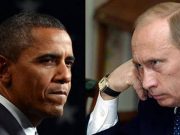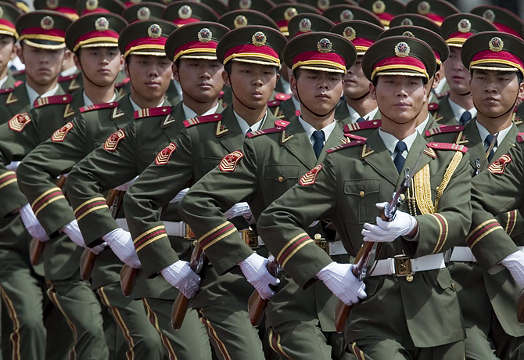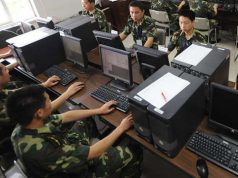The Chinese military budget for 2015 will be about 10 percent bigger than last year’s, a senior Chinese official said on Wednesday, meaning that such spending is growing at a pace faster than the overall growth rate of the Chinese economy.
The estimate was given in Beijing by Fu Ying, a veteran diplomat who is the spokeswoman for the National People’s Congress, China’s legislature, whose annual meeting begins this week. Ms. Fu said at a news conference that the military budget’s precise numbers would be announced Thursday, along with other budget outlays that will later be formally approved by the legislature.
A 10 percent increase would put the 2015 military budget around $145 billion, making China the world’s second-largest military spender, though still far behind the United States, which spends more on its armed forces than the next eight countries combined.
China’s “defense budget increases have always outpaced the growth in G.D.P.,” said Richard A. Bitzinger, a senior fellow at the S. Rajaratnam School of International Studies at Nanyang Technological University in Singapore who has studied China’s military spending patterns.
“But this is the first time when the gap could be really, really big,” Mr. Bitzinger said. “That is, if the economy only grows by, say, 6 percent, but the defense budget grows by 10 percent, that’s a really sizable difference. It demonstrates that the Chinese leadership is committed to increasing defense spending, no matter what.”
Military experts say China’s actual military budget is almost certainly higher than the official number, but still far less than that of the United States.
Budget growth of 10 percent would be lower than in 2014, when the official military budget rose 12.2 percent, to almost $132 billion. In early 2014, IHS Jane’s, a consulting and analysis company that covers the industry, estimated that China would spend $148 billion that year on its military.
China’s military expansion is generally consistent with its economic growth and the size of its economy, which is the second largest in the world and is expected to soon surpass that of the United States. Nevertheless, China’s increasingly powerful military and its modernization are alarming other Asian nations, many of which have come into diplomatic conflict with China in recent years over territorial disputes in regional seas.
Japan, Vietnam and the Philippines are among those most concerned, as is the United States, which is the pre-eminent military power in Asia. The United States has said that in general, it takes no sides in territorial disputes but wants to maintain stability and freedom of navigation in the region.
Source : New York Times
































